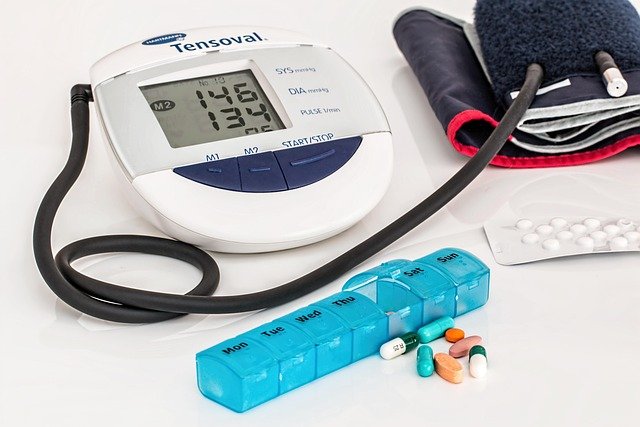Understand the Causes of a High BUN Creatinine Ratio and What It Could Indicate
Understanding your lab results can feel overwhelming, especially when dealing with kidney function markers like the BUN creatinine ratio. This important blood test measurement helps healthcare providers assess how well your kidneys are filtering waste from your body. When this ratio becomes elevated, it can signal various health conditions that require attention and proper medical evaluation.

What is a BUN Creatinine Ratio?
The BUN creatinine ratio compares two waste products in your blood: blood urea nitrogen (BUN) and creatinine. BUN measures urea nitrogen, a waste product created when your liver breaks down proteins. Creatinine is a waste product from normal muscle metabolism. Healthcare providers calculate this ratio by dividing your BUN level by your creatinine level.
A normal BUN creatinine ratio typically ranges from 10:1 to 20:1. When this ratio exceeds 20:1, it indicates that BUN levels are disproportionately higher than creatinine levels. This imbalance can reveal important information about kidney function, hydration status, and overall health.
The ratio provides more diagnostic value than individual BUN or creatinine levels alone. While creatinine levels remain relatively stable when kidneys function normally, BUN levels can fluctuate based on various factors including diet, hydration, and certain medical conditions.
Common Causes of a High BUN Creatinine Ratio
Several factors can contribute to an elevated BUN creatinine ratio. Dehydration represents one of the most frequent causes, as reduced fluid intake concentrates BUN levels while creatinine remains relatively unchanged. This commonly occurs during illness, excessive sweating, or inadequate water consumption.
High protein intake or increased protein breakdown can also elevate the ratio. This includes consuming large amounts of protein-rich foods, taking certain supplements, or experiencing tissue breakdown from injuries or infections. Gastrointestinal bleeding can similarly increase BUN levels as blood proteins are digested and absorbed.
Certain medications affect this ratio, particularly those that reduce kidney blood flow or increase protein breakdown. Heart failure can decrease blood flow to the kidneys, leading to reduced filtration and elevated BUN levels. Upper urinary tract obstructions, such as kidney stones or enlarged prostate, can also cause ratio elevation.
Possible Health Conditions Indicated
An elevated BUN creatinine ratio can indicate several health conditions requiring medical attention. Prerenal conditions, which affect blood flow to the kidneys before filtration occurs, commonly cause ratio elevation. These include heart failure, severe dehydration, shock, or conditions causing reduced blood volume.
Kidney disease in its early stages may present with elevated ratios before creatinine levels become significantly abnormal. This makes the ratio a valuable early indicator of potential kidney problems. Urinary tract obstructions anywhere from the kidneys to the bladder can also cause elevation.
Liver disease presents an interesting scenario where BUN production may decrease, potentially masking kidney problems. However, in cases of severe liver dysfunction with concurrent dehydration or other complications, ratios may still become elevated.
Gastrointestinal conditions causing bleeding or increased protein absorption can elevate BUN levels. This includes peptic ulcers, inflammatory bowel disease, or other conditions affecting the digestive tract.
Lifestyle Factors That Affect the Ratio
Various lifestyle factors significantly influence BUN creatinine ratios. Dietary habits play a crucial role, as high-protein diets can increase BUN production. Athletes or individuals consuming protein supplements may experience elevated ratios even in the absence of kidney problems.
Hydration status dramatically affects this ratio. Chronic dehydration from inadequate fluid intake, excessive alcohol consumption, or certain medications can concentrate BUN levels. Environmental factors like hot weather or intense physical activity without proper fluid replacement contribute to dehydration.
Exercise intensity and muscle mass influence creatinine production. Individuals with larger muscle mass typically have higher baseline creatinine levels, which may affect ratio calculations. Conversely, individuals with reduced muscle mass may have lower creatinine levels, potentially elevating the ratio even with normal kidney function.
Medication use affects both components of this ratio. Certain blood pressure medications, diuretics, and nonsteroidal anti-inflammatory drugs can influence kidney function and alter test results.
Next Steps if Your Ratio is High
When facing an elevated BUN creatinine ratio, the first step involves consulting with your healthcare provider for proper evaluation and interpretation. They will consider your complete medical history, current symptoms, medications, and other laboratory results to determine the underlying cause.
Your doctor may recommend additional testing to clarify the diagnosis. This might include repeat blood work, urine tests, imaging studies like ultrasounds, or more specialized kidney function tests. These additional tests help distinguish between temporary elevations and more serious underlying conditions.
Treatment approaches depend entirely on the underlying cause. Simple dehydration may require increased fluid intake and monitoring. More complex conditions like heart failure or kidney disease require comprehensive medical management and ongoing monitoring.
Lifestyle modifications often play an important role in management. This may include adjusting protein intake, ensuring adequate hydration, modifying medications under medical supervision, or addressing underlying health conditions contributing to the elevation.
Regular monitoring becomes essential for individuals with persistently elevated ratios. Your healthcare provider will determine appropriate follow-up intervals based on your specific situation and underlying health conditions.
Understanding your BUN creatinine ratio empowers you to work effectively with your healthcare team in maintaining optimal kidney health. While elevated ratios can indicate serious conditions, many causes are treatable when identified early and managed appropriately. Always prioritize professional medical evaluation over attempting to interpret laboratory results independently.
This article is for informational purposes only and should not be considered medical advice. Please consult a qualified healthcare professional for personalized guidance and treatment.




